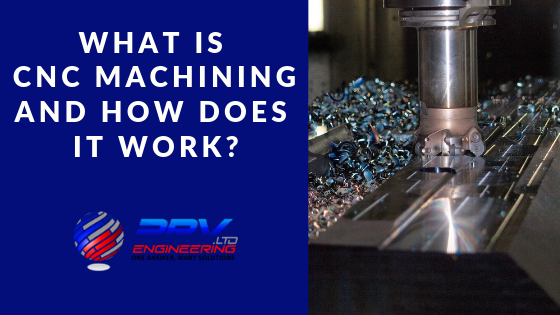
In today’s modern manufacturing world, not too many products are made without CNC machining. This includes the basics like toys, household appliances and machines but also cars, aeroplanes and medical devices among others. CNC machining is incredibly versatile and many industries cannot do without it.
Some of the main industries that rely heavily on CNC machining include aerospace, automotive, medical manufacturing and woodworking. Here, they use it use for various operations such as drilling and routing where the aerospace industry favours CNC machining because it offers the five-axis option when required. This functionality means they can more easily manage hard-to-cut materials such as Inconel.
In healthcare or the medical sector, CNC machining plays an essential role for micro-machining. This involves fabricating all the tiny parts made from different types of materials for various life-saving applications. Examples of CNC machined parts are pacemakers or titanium joints not to mention tools and implements for medical professionals.
What Is CNC Machining?
CNC or Computer Numerical Control refers to a process that involves using computers to control machine tools. Some of these tools that computer systems control include lathes, mills, routers and grinders.
Since computers control the machines, all major production operations are automated which results in faster manufacturing and improved quality. The importance of quality CNC machining should not be ignored as it makes all the difference in the final product.
How Does CNC Machining Work?
When first looking at the CNC process, it may seem like a normal PC controlling the machines but it certainly is not the case. The computer systems and software are unique and set them apart from the rest along with the advanced control console.
As previously mentioned, CNC machine tools function through numerical control which is essentially a computer program customised for an object. These machines are also programmed with a CNC machining language or ‘G-code’ that will control the feed rate, coordination, location and speed. The computers control the exact positioning and velocity which makes CNC machining ideal for manufacturing metal and plastic parts.
First, create a drawing using CAD software (2D or 3D) and then create a code that the machine will understand. The program gets loaded and a human operator tests the program to ensure there are no problems. This effectively becomes a trial run and many refer to it as “cutting air”. It is a vital step in the process as any mistake with speed or tool positioning could result in a scraped part or worse, a damaged machine.
Why Is CNC Machining Important?
CNC machining is a popular method as it streamlines the manufacturing process. There are many benefits of using CNC Machining as the process is far more precise than manual machining. Here are some of the main advantages of CNC Machining:
- The manufacturing process can be repeated in exactly the same manner countless times
- Improved endurance of CNC machines mean they can work continuously, even weekends and holidays
- Each part that the CNC machines produce matches the exact specifications of the prototype
- CNC results in parts made with greater accuracy and improved speed
- Due to the advanced precision, CNC machining can produce complex shapes that would otherwise be impossible to achieve using manual machines
- CNC machining can produce many complex 3D shapes
- CNC requires less staff to execute the production tasks
- Reduced spending on staff, training and manufacturing costs result in big potential savings
These qualities allow companies to use CNC machining for jobs that require high levels of precision or repetitive tasks. Because of the reduced spending, CNC machining can affect a better bottom line for manufacturing businesses and their clients. Companies can use the subsequent lower costs to create a competitive advantage and the opportunity for business re-investment.
CNC Machining For Metal Removal
People frequently use CNC machines in industries where they have to remove excess metal from raw materials to create complex parts. A good example is in the automotive industry where they make gears, shafts and other complex parts from raw materials.
CNC machines are also used in the manufacturing industry for producing rectangular, square, rounded and even threaded jobs. These machines can control and carry out all processes, including milling, grinding, turning, boring and reaming, among others, using specific machine tools for each task.
CNC And Metal Fabrication
Several industries require thin plates for a host of applications and they extensively use CNC machines. These machines include plasma or flame cutting, laser cutting, shearing, forming and welding. CNC plasma or laser cutters can shape metal while manufacturers use CNC turret presses for punching holes. CNC press brakes carry out other operations with very high-precision, including bending metal plates.
About PRV Engineering
As one of the leading engineering companies in the UK, we provide state-of-the-art CNC machining to a wide range of industries. These include food and chemical processing companies, medical and pharmaceutical industries, railway, defence and automotive among others.
Get in touch if you have any questions about PRV Engineering or how we can help with your project. Please follow our weekly blog posts if you’d like to keep up to date on all the latest in engineering, manufacturing and technology developments from around the world.
This site uses Akismet to reduce spam. Learn how your comment data is processed.


 Mail:
Mail: 




Leave a Comments